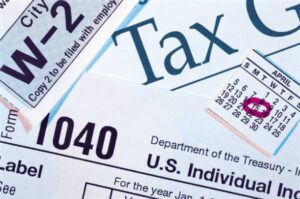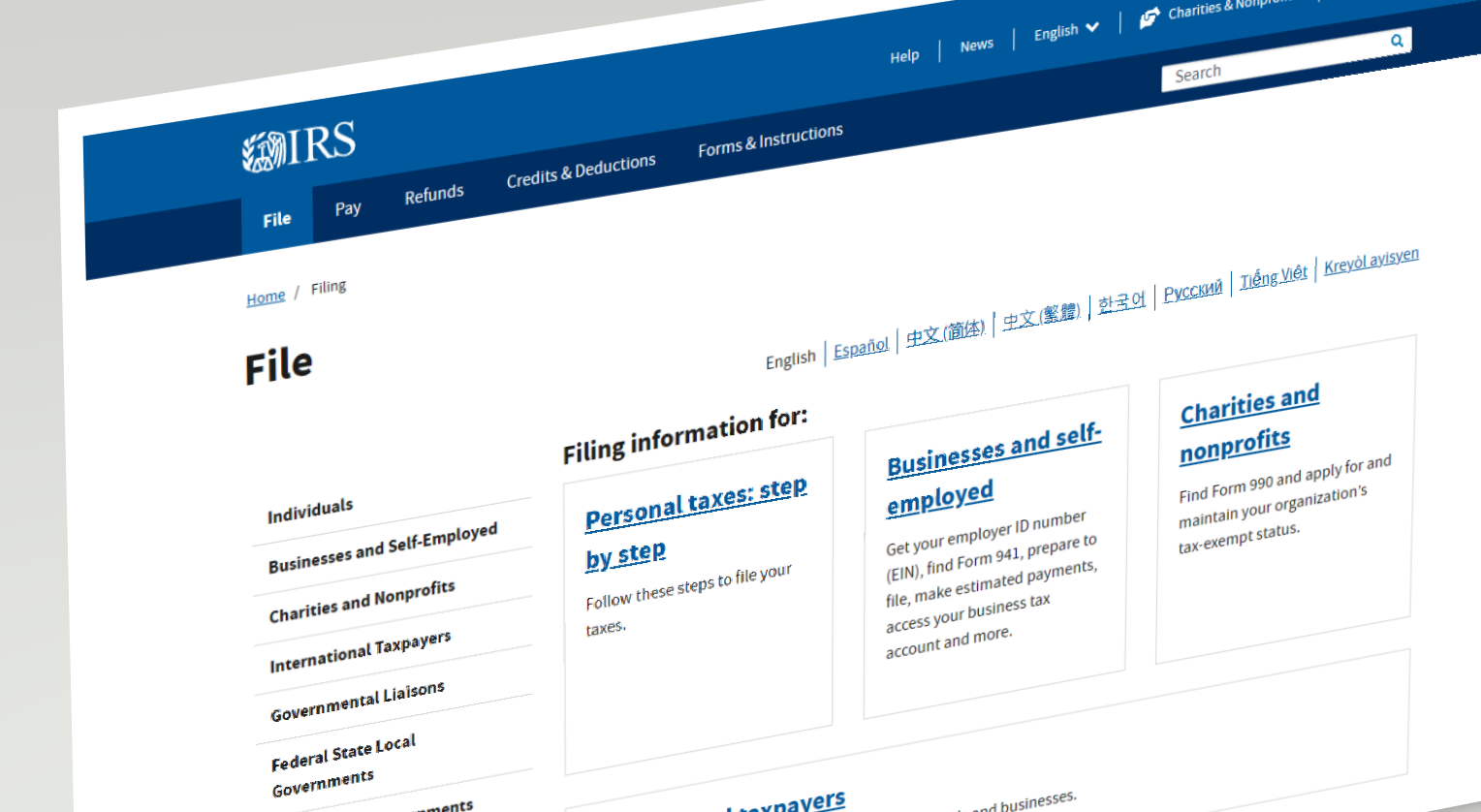IRS audit triggers
It’s always worth it to be aware of your financial situation, not just at tax time. Here are some of the most common IRS audit triggers.
1. Not reporting all your income
If you’re trying to catch the attention of the IRS, your best bet is to simply not report all your income. But, even if you don’t report your income to the IRS, the business that pays you will.
For example, if you work as a contractor, the company paying you will report your income on a 1099, typically a 1099-MISC.
It is very common for the self-employed to receive several, perhaps dozens, of 1099-MISC forms every tax year. The important thing to know is that every 1099 goes out twice: one for you and one for the IRS. Companies are required to send out two copies to keep contractors accountable.
If you receive a 1099, W-2, or other income document and fail to report it, the IRS will note the discrepancy and follow up. From there, it’s only a matter of time before you get a CP2000 letter in the mail letting you know about an income discrepancy, or worse, an audit notification.
2. Claiming too many charitable donations
The government offers income tax deductions to encourage charitable giving—after all, helping others is beautiful. If you donate what appears to be too much, though, your charitable donation deductions can trigger an audit.
It seems counterintuitive to be potentially “punished” for helping. However, if you’re only making $45,000 per year and somehow donating $15,000 as charitable contributions, the IRS is going to raise an eyebrow at your generosity.
If you actually are generous enough to give away a substantial portion of your income as charitable contributions, just remember to keep records and receipts of your donations. If you can prove that your contributions are legitimate, the IRS will likely thank you for your generosity and head off to find someone abusing the charitable donation tax deductions.
3. Running a cash-based business
Cash transactions greater than $10,000, including cash deposits in your bank account, may be reported to the IRS. If your business is cash-based and relies on large cash transactions, the IRS may take notice. After all, cash transactions don’t leave the same paper trail as credit card transactions—and the IRS loves a good paper trail.
If you pair large cash transactions with lower earnings in your reported income, you might as well start waving the red flag.
Large amounts of cash on your Schedule C can also earn a side-eye from the IRS, especially if you have significant cash expenses.
4. Reporting too many losses on a Schedule C
Every business has expenses, but if you are self-employed and tempted to include a few personal expenses in with the business expenses on your Schedule C this year, don’t.
It may feel tempting to fudge a few expenses to boost your tax deductions and lower your tax burden. But the IRS knows how many small business owners give in to temptation, and they are watching for reported losses that seem excessive.
5. Deducting entertainment expenses
Current tax laws mean that self-employed business owners enjoy greater flexibility when it comes to tax deductions. Travel, meals, and entertainment expenses always draw additional scrutiny, though. If you deduct large numbers of entertainment expenses every year, you risk attracting unwanted attention from the IRS.
Hotels, meals, and expenses like theater, concert, and sporting event tickets may fall right in line with your business purpose if you’re a recruiter, agent, or traveling contractor. Or they might trigger an audit.
If you have large amounts of legitimate entertainment expenses every year, simply keep the credit card receipts and records of their use to demonstrate their credibility if called into question by the IRS.
6. Using the home office deduction
Many people have a home office space, whether they are self-employed or not. Home office expenses are tax-deductible, but there are very specific rules that regulate how and when you can use the home office tax deduction.
One of the most common mistakes is claiming a multi-functional space as a home office and claiming corresponding deductions. This can lead to trouble since, to qualify, a home office space must be dedicated to a singular purpose. Be sure you understand the regulations and follow them carefully to avoid raising a red flag for the IRS.
7. Failing to make money
Starting a new business can be challenging, and some years are certainly financially better than others. The IRS knows this, and it doesn’t expect you to make a profit in your business every year. But at some point, you should be earning (and reporting) taxable income.
If you fail to report a profit three years out of every five, the IRS becomes concerned that your unprofitable business might be operating in unsavory, auditable ways. This can be especially true for side gigs and hobby businesses, so keep receipts if you’re constantly claiming business losses as write-offs.

8. Making too much money
The IRS isn’t terribly interested in harassing hard-working small business owners who are making moderate incomes. Their energy does pick up, however, when it comes to businesses and individuals who make more than a million dollars per year.
Auditing a small business owner over a discrepancy of a few hundred dollars isn’t as worthwhile to the government as auditing a multi-million-dollar company full of high-income earners who may be hiding tens or hundreds of thousands of dollars. For this reason, being a high earner can be a trigger for the IRS.
If your small business is making more than a million dollars each year, congratulations! When you hit this level, we suggest working with a tax preparation professional, as your tax forms are likely to be more complex, and you will now be under more scrutiny.
9. Using neat numbers
Round numbers are nice and neat. It’s pretty when all your accounts end in whole numbers, or better yet, fives and zeros. But while you might find it easier to count your money when everything is a multiple of five or ten, it’s not realistic, and the IRS knows that.
Payments and expenses have varying amounts of both dollars and cents, so if you’re rounding off all your entries—or, worse, estimating them—you’re making the sort of error the IRS is watching for. It may not be as satisfying, but precisely kept books are correct, not just “pretty.”
10. Making mistakes
IRS employees are human, after all, and they understand that people make mistakes. Still, that won’t prevent you from being audited or fined if you make a sizable error on your tax forms. That’s because it’s not just people reviewing your tax forms—it’s computers, too.
The IRS uses a program called the Automated Underreport (AUR) unit to review tax filings and check for discrepancies. The AUR matches the amounts you include on your form with the amounts reported by employers or other sources of income. It also looks for deductions that may be unusual or suspiciously large.
If you’re preparing your own tax forms, check them thoroughly to be sure you didn’t forget a zero or put a decimal in the wrong spot. Working with a tax professional can help alleviate some of this concern since you’ll have expert eyes reviewing the forms and double-checking for possible mistakes or calculation errors.
Math errors can happen, but if you spot them before you submit your forms, they are easily resolved.
In all, if you can stay away from these 10 IRS audit triggers, you’re not likely to find them knocking at your door:
-
- ● Not reporting all your income
- ● Claiming too many charitable donations
- ● Running a cash-based business
- ● Reporting too many losses on a Schedule C
- ● Deducting entertainment expenses
- ● Using the home office deduction
- ● Failing to make money
- ● Making too much money
- ● Using neat numbers
- ● Making mistakes
Thank you for reading and sharing your time with us!
Please feel free to contact us for more details.











